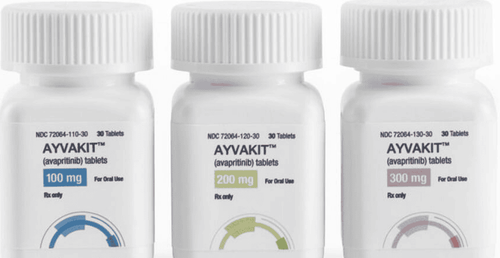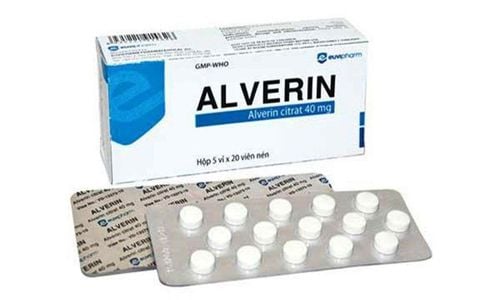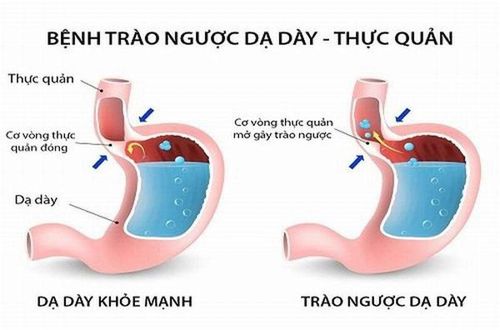This is an automatically translated article.
Posted by Master, Doctor Mai Vien Phuong - Department of Examination & Internal Medicine - Vinmec Central Park International General Hospital
Genome sequencing, bioinformatics (e.g., relative abundance) of the combined microbiome have revolutionized the way we think about the “human” body in terms of health health and disease. The interaction between gut bacteria and the host immune system plays an important role in the pathogenesis of gastrointestinal diseases, including those affecting the esophagus.
Although relatively stable, there are a number of factors that can disrupt the delicate balance between the oesophageal microbiota (oesophageal microbiota) and the host. These changes are attributed to age, diet, antibiotic and other drug use, oral hygiene, smoking and/or the expression of antibiotic (bacterial) products by the flora. other. These effects can lead to persistent dysbiosis, which in turn increases the risk of local inflammation, systemic inflammation, and ultimately disease progression. ie acidity). Emerging evidence also suggests that esophageal microbiota plays a major role in the pathogenesis of the disease by stimulating an immunogenic response that ultimately propagates the inflammatory cascade.
1. Intestinal microbiota is closely related to gastroesophageal disease
Over the past two decades, 16S rRNA gene sequencing has been used to characterize and compare the esophageal microbiota (esophageal microbiota) of healthy individuals with those of patients with esophageal disease. including gastroesophageal reflux disease (reflux esophagitis), Barrett's esophagus (Barrett's esophagus), adenocarcinoma of the esophagus (adenocarcinoma of the esophagus), leukocytosis esophagitis eosinophils (EoE), and esophageal motility disorders. Analysis of the compositional differences between healthy and dysbiotic organisms in the esophagus has provided further insight into the pathogenesis of reflux esophagitis and its associated sequelae. other related diseases.
2. The relationship between diet and the composition of the gastroesophageal microbiota
Dietary factors affecting the colon microbiota in childhood (breastfeeding versus formula) and in adulthood (affecting colon microbiota with nutritional changes) in a short period of time). With a specific focus on the gastrointestinal microbiota, diet has been implicated in the development of esophageal diseases such as Barrett's esophagus, adenocarcinoma of the esophagus. and esophageal squamous cell carcinoma (ESCC). In particular, consumption of leafy and cruciferous vegetables, as well as raw fruit, is associated with a reduced risk of Barrett's esophagus and adenocarcinoma of the esophagus, while consumption of red meat is associated with an increased risk. muscle.

3. Breast milk plays a big role in the development of the gastrointestinal microbiota
During early life, breastfeeding, formula feeding and solid food feeding play a large role in the development of the gastrointestinal microbiota. Although more specific investigation is needed to evaluate specific effects on esophageal microbiota, it is likely that similarities in progression may occur due to similarity factors. Breast milk is mainly composed of the bacteria Corynebacterium, Ralstonia, Staphylococcus, Streptococcus, Serratia, Pseudomonas, Propionibacterium, Sphingomonas and Bradyrhizobiaceae in addition to milk oligosaccharides.
4. What do the studies say?
The impact of breastfeeding on the infant gastrointestinal microbiota was highlighted in two studies that showed that formula-fed infants had a lower ratio of Bifidobacterium and Lactobacillus spp and a ratio of Clostridiales and lactobacilli. Proteobacteria were higher when compared with breastfed infants. Furthermore, formula-fed infants had lower microbial diversity after the first year of life than breastfed infants. Several other epidemiological studies have suggested that breastfeeding has a protective role against asthma, autism, and type 1 diabetes, and have shown a lower association between inflammatory diseases and autoimmunity. As stated earlier, the phylogenetic composition fluctuates considerably during the first 3 years of life before developing into a more mature and stable morphotype. This change could allow infants to be better equipped to handle the preparation of a healthier diet.
5. Many issues are still being clarified
In adults, the gastroesophageal microbiota and its relationship to diet are still under investigation. The focus of studies here will be on diet and its relationship with esophageal disease to serve as a basis for possible future follow-up studies on the role of the microbiome. organisms in the stomach and esophagus. There are some difficulties, especially with confounding issues and study design, when correlating dietary factors in adults with esophageal disease. Consequently, most of the available literature on diet and Barrett's esophagus or esophageal adenocarcinoma is based on case-control studies in which small to moderate inverse associations have been reported. reported with a diet low in fruits and vegetables (green, leafy and cruciferous vegetables). It has been hypothesized that fruits and vegetables, which are rich in antioxidants, phytosterols and other substances, may inhibit cancer formation by scavenging free radicals or by preventing their formation. N-nitroso compounds in gastric juice and respiratory tract. Other case-control studies have shown an association with a diet high in red and processed meat and an increased risk of esophageal cancer, possibly because processed meat is the main source of nitrites and nitrosamines.

6. Diet affects the rate of esophageal cancer
Given the potential for multiple interactions between specific macronutrients, other studies have turned to looking at dietary regimens for easier study design. They found that the Mediterranean diet was inversely associated with both Barrett's esophagus and adenocarcinoma of the esophagus, while the "Western diet" consumed more meat and less fruit and vegetables. results, seems to increase the risk of these diseases. Although the relationship between the dietary intake of fruits and vegetables, as well as red and processed meat, has recently been more implicated, further evaluation of the interactions of these diets and Microbial composition of the microbiota in the stomach and esophagus.
7. Dietary fiber also affects the microbiome in the oesophagus
A study specifically looking at the relationship of diet to the gastrointestinal microbiota evaluated patients with high overall fiber versus high fat intake and found that dietary fiber but not fat intake was associated with distinct esophageal microbiota. In particular, an increase in fiber intake was significantly associated with an increase in the relative amount of Firmicute, including Streptococcus spp. And reduced relative abundance of gram-negative bacteria in general. Low fiber intake has been associated with increased relative abundance of several gram-negative flora, including Prevotella, Neisseria and Eikenella spp. These findings provide a potential dietary treatment option to prevent or slow the progression of esophageal disease by reducing exposure to higher levels of gram-negative bacteria, and thereby reducing the induction of the inflammatory cascade caused by gram-negative bacteria- lipopolysaccharide.
Please dial HOTLINE for more information or register for an appointment HERE. Download MyVinmec app to make appointments faster and to manage your bookings easily.














